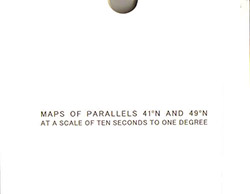
A map of the latitudes delineating the geographical area where the European - North American history of deforestation and resforestation has played out, in a work of guitar and field effects from Portugese artist Helen Mirra and sound artist Ernst Karel.
Out of Stock
Quantity in Basket: None
Log In to use our Wish List
Shipping Weight: 3.00 units
Sample The Album:
Helen Mirra
Ernst Karel
Lisa Marie Landgraf-guitar
railroad-16mm film
rewind crank
deep water-bass guitar
winds-analog noise
generator and filters
Sam Rivers-silences
Click an artist name above to see in-stock items for that artist.
UPC: 5609063800135
Label: Shhpuma
Catalog ID: SHH013
Squidco Product Code: 20392
Format: CD
Condition: New
Released: 2015
Country: Portugal
Packaging: Cardboard sleeve with insert
Recorded with 1999 and 2002.
"Helen Mirra doesn't bring the kind of easy-conceptualism often characteristic of contemporary visual and sound art to the table. Her creations are in contrast with the practices and configurations established in an artistic field known for its experimental focus, but also tending to turn forms and methods into patterns.
The collaboration with Ernst Karel documented here - a map of the latitudes delineating the geographical area where the European - North American history of deforestation and resforestation has played out - seems something that we could file under the subgenre Acoustic Ecology, as defined by Murray Schafer. Truth is we can't: all the sounds suggest they were produced by nature, but their origins are entirely artificial and they function in a representative, parabolic way, by means of noise generators, a rewind film crank (without the film), a bass guitar and a guitar.
If a map is the representation of a topographic reality in a minor scale, that virtual condition is even more enhanced with these resources. And when we are convinced that music is something else than what we get here, music emerges, with a subtle, but strong effect, with micro and macro dimensions. Appearances trick us; we know that, but we always forget it."-Shhpuma

The Squid's Ear!
Artist Biographies
• Show Bio for Sam Rivers "Samuel Carthorne Rivers (September 25, 1923 Ð December 26, 2011) was an American jazz musician and composer. He performed on soprano and tenor saxophones, bass clarinet, flute, harmonica and piano. Active in jazz since the early 1950s, he earned wider attention during the mid-1960s spread of free jazz. With a thorough command of music theory, orchestration and composition, Rivers was an influential and prominent artist in jazz music. Rivers was born in El Reno, Oklahoma. His father was a gospel musician who had sung with the Fisk Jubilee Singers and the Silverstone Quartet, exposing Rivers to music from an early age. His grandfather was Marshall W. Taylor, a religious leader from Kentucky. Rivers was stationed in California in the 1940s during a stint in the Navy. Here he performed semi-regularly with blues singer Jimmy Witherspoon. Rivers moved to Boston, Massachusetts in 1947, where he studied at the Boston Conservatory with Alan Hovhaness. He performed with Quincy Jones, Herb Pomeroy, Tadd Dameron and others. In 1959 Rivers began performing with 13-year-old drummer Tony Williams. Rivers was briefly a member of the Miles Davis Quintet in 1964, partly on Williams's recommendation. This edition of the quintet released a single live album, Miles in Tokyo, from a show recorded on July 14 at Kohseinenkin Hall. Rivers' tenure with the quintet was brief: he had engagements in Boston, and his playing style was too avant-garde for Davis during this period; he was replaced by Wayne Shorter shortly thereafter. Rivers was signed by Blue Note Records, for whom he recorded four albums as leader and made several sideman appearances. Among noted sidemen on his own Blue Note albums were Jaki Byard, who appears on Fuchsia Swing Song, Herbie Hancock and Freddie Hubbard. He appeared on Blue Note recordings by Tony Williams, Andrew Hill and Larry Young. Rivers derived his music from bebop, but he was an adventurous player, adept at free jazz. The first of his Blue Note albums, Fuchsia Swing Song (1964), adopts an approach sometimes called "inside-outside". Here the performer frequently obliterates the explicit harmonic framework ("going outside") but retains a hidden link so as to be able to return to it in a seamless fashion. Rivers brought the conceptual tools of bebop harmony to a new level in this process, united at all times with the ability to "tell a story", which Lester Young had laid down as a benchmark for the jazz improviser. His powers as a composer were also in evidence in this period: the ballad "Beatrice" from Fuchsia Swing Song has become an important standard, particularly for tenor saxophonists. For instance, it is the first cut on Joe Henderson's 1985 The State of the Tenor, Vols. 1 & 2, and Stan Getz recorded it during the 1989 sessions eventually issued as Bossas & Ballads Ð The Lost Sessions. During the 1970s, Rivers and his wife, Bea, ran a jazz loft called "Studio Rivbea" in New York City's NoHo district. It was located on Bond Street in Lower Manhattan and was originally opened as a public performance space as part of the first New York Musicians Festival in 1970. Critic John Litweiler has written that "In New York Loft Jazz meant Free Jazz in the Seventies" and Studio Rivbea was "the most famous of the lofts". The loft was important in the development of jazz because it was an example of artists creating their own performance spaces and taking responsibility for presenting music to the public. This allowed for music to be free of extra-musical concerns that would be present in a nightclub or concert hall situation. A series of recordings made at the loft were issued under the title Wildflowers on the Douglas label. Rivers was also recruited by Clifford Thornton to lead a student world-music/free-jazz ensemble at Wesleyan University in 1971. During this era Rivers continued to record, including several albums for Impulse!: Streams, recorded live at Montreux, Hues (both records contain different trio performances later collated on CD as Trio Live), the quartet album Sizzle and his first big-band disc, Crystals; perhaps his best-known work from this period though is his appearance on Dave Holland's Conference of the Birds, in the company of Anthony Braxton and Barry Altschul. In the early 1990s Sam and wife Beatrice moved to Florida, in part to expand his orchestra compositions with a reading band in Orlando. This band became the longest-running incarnation of the RivBea Orchestra. He performed regularly with his Orchestra and Trio with bassist Doug Mathews and drummer Anthony Cole (later replaced by Rion Smith.) From 1996 to 1998 he toured and recorded three projects for Nato Records in France with pianist Tony Hymas and others. In 1998, with the assistance of Steve Coleman, he recorded two Grammy-nominated big-band albums for RCA Victor with the RivBea All-Star Orchestra, Culmination and Inspiration (the title-track is an elaborate reworking of Dizzy Gillespie's "Tanga": Rivers was in Gillespie's band near the end of the trumpeter's life). Other late albums of note include Portrait, a solo recording for FMP, and Vista, a trio with drummers Adam Rudolph and Harris Eisenstadt for Meta. During the late 1990s he appeared on several albums on Postcards Records. In 2006, he released Aurora, a third CD featuring compositions for his Rivbea Orchestra and the first CD featuring members of his working orchestra in Orlando. Rivers died from pneumonia on December 26, 2011 at the age of 88 in Orlando, Florida. On June 25, 2019, The New York Times Magazine listed Sam Rivers among hundreds of artists whose material was reportedly destroyed in the 2008 Universal fire." ^ Hide Bio for Sam Rivers
12/17/2025
Have a better biography or biography source? Please Contact Us so that we can update this biography.
Track Listing:
1. A Map Of Parallels 41ûN And 49ûN At A Scale Of Ten Seconds To One Degree (Home Stereo Version) 1:00:00
Electro-Acoustic
Organized Sound and Sample Based Music
Field Recordings
Clean Feed
Squidco's Clean Feed 50% Sale
Search for other titles on the label:
Shhpuma.

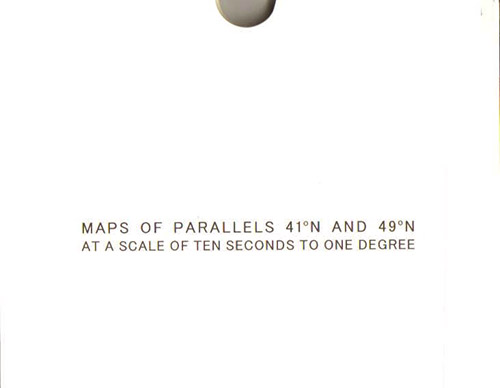
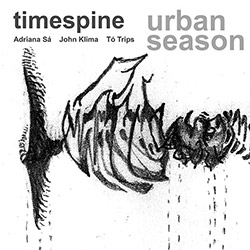

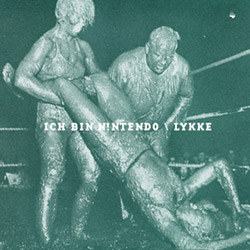
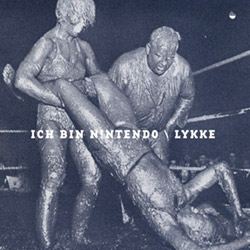
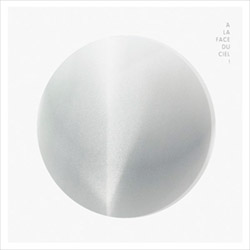
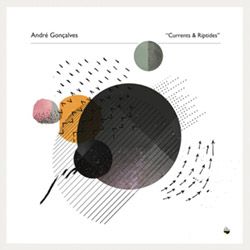
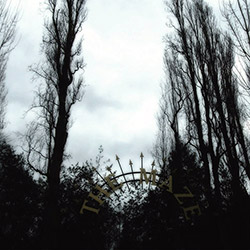




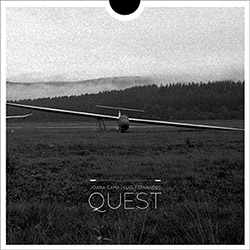

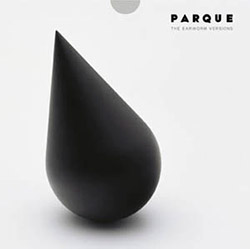
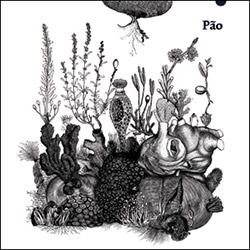

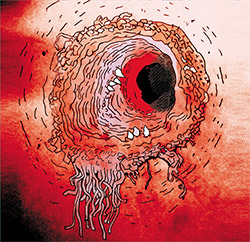
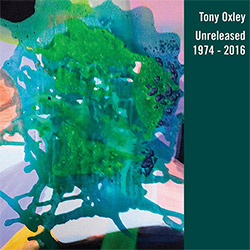




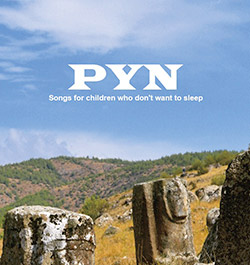




![HobbyHouse (Mia Dyberg / Axel Filip): HobbyHouse [CD + DOWNLOAD]](https://www.teuthida.com/productImages/misc4/36944.jpg)
![Mines, Kelsey / Erin Rogers: Scratching At The Surface [CD + DOWNLOAD]](https://www.teuthida.com/productImages/misc4/36945.jpg)
![Nebbia, Camila (feat/ Marilyn Crispell / Lesley Mok): A Reflection Distorts Over Water [CD + DOWNLOAD]](https://www.teuthida.com/productImages/misc4/36946.jpg)
![Vanheerentals, Adia: Taking Place [CD + DOWNLOAD]](https://www.teuthida.com/productImages/misc4/36947.jpg)
![Mines, Kelsey / Vinny Golia: Collusion and Collaboration [CD + DOWNLOAD]](https://www.teuthida.com/productImages/misc4/36948.jpg)
![Parkins, Zeena: Lament For The Maker [CD + DOWNLOAD]](https://www.teuthida.com/productImages/misc4/36949.jpg)
![Evans, Peter / Mike Pride : A Window, Basically [CD + DOWNLOAD]](https://www.teuthida.com/productImages/misc4/36950.jpg)


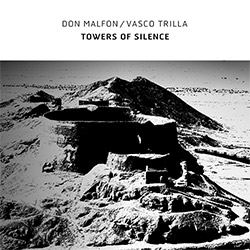
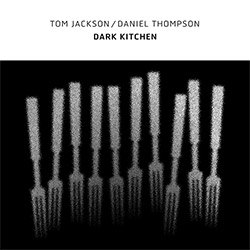
![Frey, Jurg : Composer, Alone [3 CDs]](https://www.teuthida.com/productImages/misc4/36927.jpg)
![Belorukov, Ilia / Alex Riva: Wrestling For Futility [CASSETTE w/DOWNLOAD]](https://www.teuthida.com/productImages/misc4/36994.jpg)
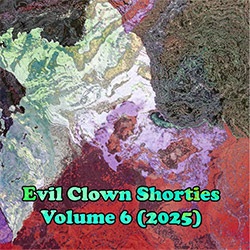
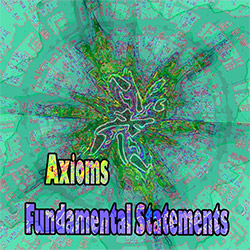










![Agnel, Sophie: Learning [VINYL]](https://www.teuthida.com/productImages/misc4/36841.jpg)

![Monaco, Amanda (w/ Michael Attias / Sean Conly / Satoshi Takeishi) : Deathblow [VINYL+ DOWNLOAD]](https://www.teuthida.com/productImages/misc4/36956.jpg)
![Frey, Jurg with ensemble]h[iatus: Je Laisse A La Nuit Son Poids D](https://www.teuthida.com/productImages/misc4/36988.jpg)
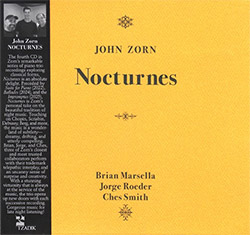
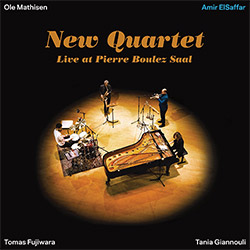
![ElSaffar, Amir / New Quartet : Live at Pierre Boulez Saal [VINYL]](https://www.teuthida.com/productImages/misc4/36830.jpg)

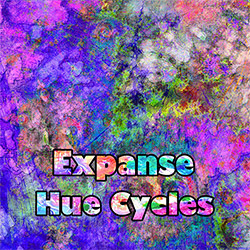
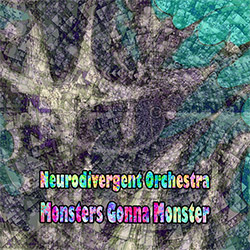
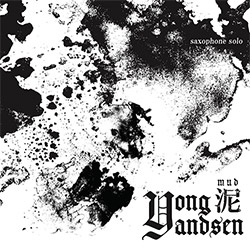

![Musicworks Magazine: #152 Fall 25 [MAGAZINE + CD]](https://www.teuthida.com/productImages/misc4/37004.jpg)
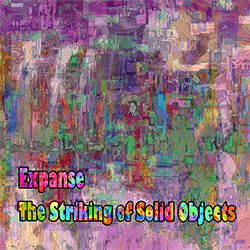




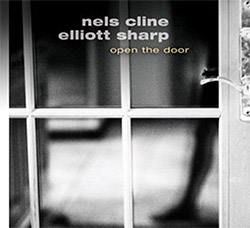
![[ahmed] (Thomas / Grip / Gerbal / Wright): Sama](https://www.teuthida.com/productImages/misc4/36976.jpg)

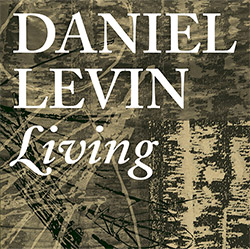
![Cleaver, Gerald / Brandon Lopez / Hprizm: In The Wilderness [COLOR VINYL]](https://www.teuthida.com/productImages/misc4/33060.jpg)
![McPhee, Joe : Defiant Jazz: a Joe McPhee Taster [VINYL]](https://www.teuthida.com/productImages/misc4/36859.jpg)
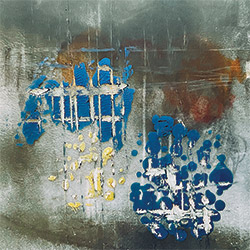
![Mateen, Sabir / Patrick Holmes / Federico Ughi : Survival Situation [LTD VINYL LP + DOWNLOAD]](https://www.teuthida.com/productImages/misc4/29891.jpg)
![Tucker, Dave / Pat Thomas / Thurston Moore / Mark Sanders: Educated Guess Vol. 1 [COLORED VINYL]](https://www.teuthida.com/productImages/misc4/30183.jpg)
![Sarian, Michael / Matthew Putman: A Lifeboat (Part I) [COLORED VINYL]](https://www.teuthida.com/productImages/misc4/30426.jpg)

![Genthon, Anouck / Lionel Marchetti: Suite Blanche [2 CDs]](https://www.teuthida.com/productImages/misc4/36642.jpg)
![Toeplitz, Kasper T.: Erosions Programmees [CD + BOOKLET]](https://www.teuthida.com/productImages/misc4/36639.jpg)
![Gate, The : Amost Live [CASSETTE + MAGAZINE]](https://www.teuthida.com/productImages/misc4/36836.jpg)






![A Magic Whistle: The Solar Cell [VINYL]](https://www.teuthida.com/productImages/misc4/36658.jpg)

![McGee, Hal: Columbus Expedition [Cassette w/ Download]](https://www.teuthida.com/productImages/misc4/36650.jpg)


![Jaeger, Kassel: Fernweh [VINYL 2 LPs]](https://www.teuthida.com/productImages/misc4/36541.jpg)





![+DOG+: The Light Of Our Lives [2 CDs]](https://www.teuthida.com/productImages/misc4/36009.jpg)


![Eternities: Rides Again [CASSETTE]](https://www.teuthida.com/productImages/misc4/36247.jpg)

![Lopez, Francisco: Untitled (2021-2022) [2 CDs]](https://www.teuthida.com/productImages/misc4/36438.jpg)





![Pisaro-Liu, Michael: Within (2) / Appearance (2) [2 CDs]](https://www.teuthida.com/productImages/misc4/36831.jpg)










![Musicworks Magazine: #151 Summer 25 [MAGAZINE + CD]](https://www.teuthida.com/productImages/misc4/36559.jpg)

![Brown, Dan / Dan Reynolds: Live At The Grange Hall [unauthorized][CASSETTE]](https://www.teuthida.com/productImages/misc4/36245.jpg)


![Zorn, John: The Song of Songs [CD + CD BOOK]](https://www.teuthida.com/productImages/misc4/36923.jpg)

![Coultrain: Mundus [COLORED VINYL]](https://www.teuthida.com/productImages/misc4/33056.jpg)
![Hprizm: Signs Remixed [COLORED VINYL]](https://www.teuthida.com/productImages/misc4/30635.jpg)
![Halls Of the Machine: All Tribal Dignitaries [CASSETTE w/ DOWNLOAD]](https://www.teuthida.com/productImages/misc4/36134.jpg)



![Koenjihyakkei: Live at Club Goodman [2 CDs]](https://www.teuthida.com/productImages/misc4/36111.jpg)

![Sorry For Laughing (G. Whitlow / M. Bates / Dave-Id / E. Ka-Spel): Rain Flowers [2 CDS]](https://www.teuthida.com/productImages/misc4/35985.jpg)

![Rolando, Tommaso / Andy Moor : Biscotti [CASSETTE w/ DOWNLOADS]](https://www.teuthida.com/productImages/misc4/36106.jpg)


![Electric Bird Noise / Derek Roddy: 8-10-22 [CD EP]](https://www.teuthida.com/productImages/misc4/35970.jpg)








![Elephant9 : Mythical River [VINYL]](https://www.teuthida.com/productImages/misc4/34624.jpg)



![Elephant9 with Terje Rypdal: Catching Fire [VINYL 2 LPs]](https://www.teuthida.com/productImages/misc4/35355.jpg)
![Coley, Byron: Dating Tips for Touring Bands [VINYL]](https://www.teuthida.com/productImages/misc4/17906.jpg)

![Lost Kisses: My Life is Sad & Funny [DVD]](https://www.teuthida.com/productImages/misc4/lostKissesDVD.jpg)